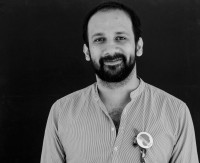Societal Challenges
Economics & Global Development
Health & Socioeconomic Inequality
Social Protection
Econometric Models & Mathematics
Inequality & Poverty
Ph.D
Netherlands
2011.09.14
International variation in the socioeconomic health gradient : do the institutional arrangements matter?
In Glasgow, life expectancy can range from 54 to 82 depending on whether people live in a deprived neighborhood or an affluent area. There are many reasons for such disparities; however, numerous studies have revealed a strong relationship between health and socioeconomic status (SES). Nonetheless, explaining this relationship mechanism is a different story since both SES and health rely on many different factors.
Using an innovative technique in structural econometrics, Dr. Koç hopes to fill this gap. Starting from existing studies, her first task will be to harmonize research findings and compare them to reality through the combined use of socioeconomic data and structural econometrics. The results of her work will provide an estimate of the relationship between health and SES, backed up by theory.
One of the objectives of this work is to test the relevance of certain public policies that affect both people’s health and socioeconomic status. Was an education policy efficiently implemented? Is this policy relevant everywhere or only in specific areas? These are some of the questions that Hale Koç’s research aims to answer.
Today, Koç’s research is focused on the Netherlands, but she is considering extending her model to other countries. As a very powerful tool for governments, this model will be highly valuable for the implementation of new health and socio-economic policies.
Be Wealthy, Be Healthy
To add or modify information on this page, please contact us at the following address: community.research@axa.com

Hale
KOC
Institution
Erasmus University Rotterdam
Country
Netherlands
Nationality
Turkish
Related articles
Finance, Investment & Risk Management
Societal Challenges
Microfinance & Financial Inclusion
Emerging Market
Inequality & Poverty
Joint Research Initiative
China
2021.04.19
Understanding the Financial Lives of Low Income Households in China
Leveraging financial diaries research methodology, this joint initiative aims to provide actionable insights about the financial lives of low-income households... Read more

Xiugen
MO
Chinese Academy of Financial Inclusion
Societal Challenges
Pandemics & Infectious Diseases
Inequality & Poverty
Emerging Market
Social Justice & Equity
Covid-19
AXA Award
Ghana
2020.08.31
Adapting Pandemic Management to Vulnerable Populations
The first employs a cross-country survey approach to answer the following questions: what are the impacts of pandemics on informal... Read more

Mohammed
AMIDU
